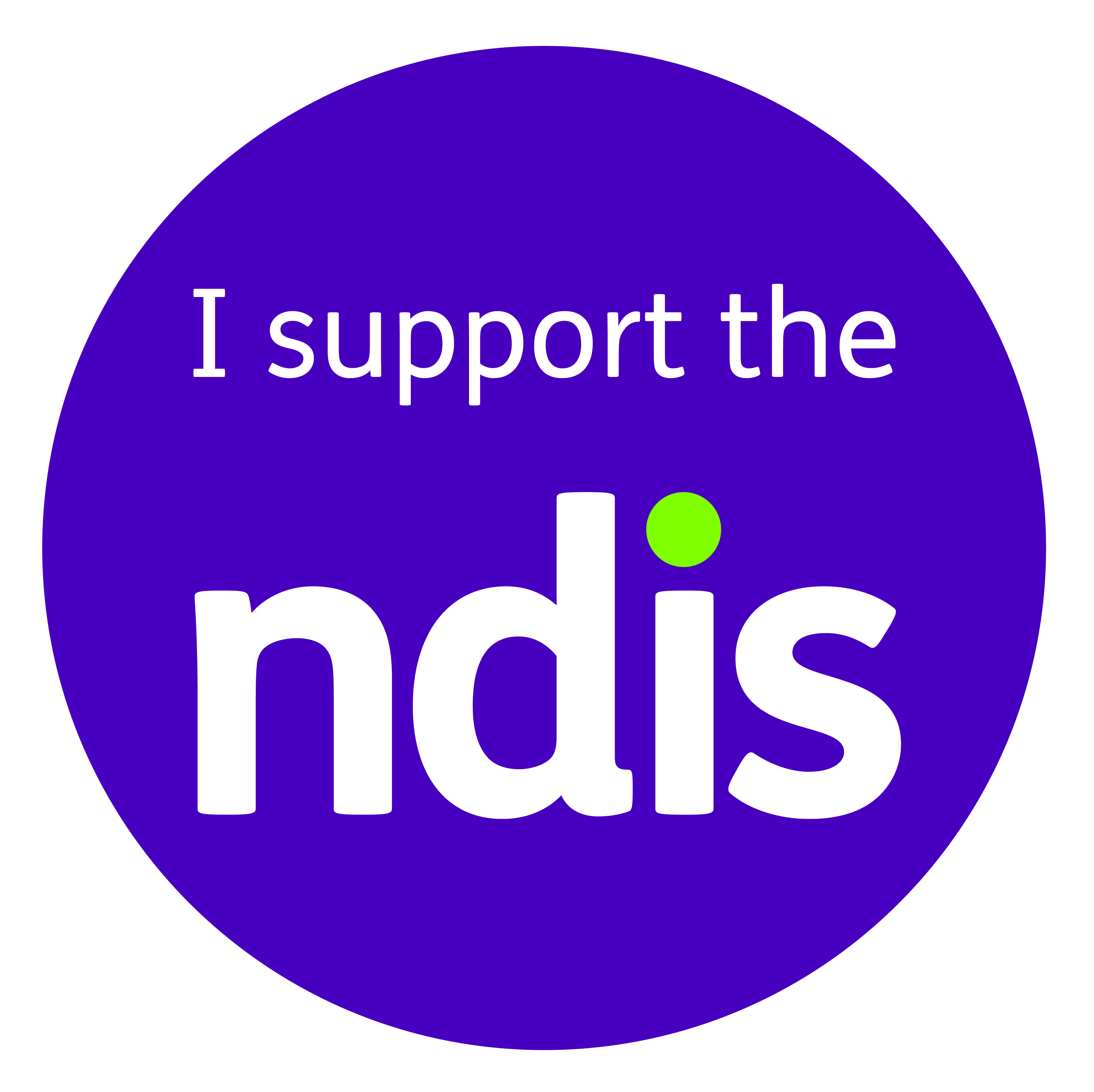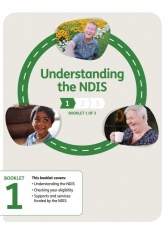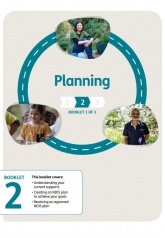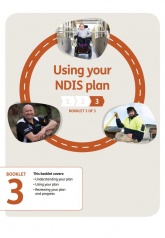The National Disability Insurance Scheme (NDIS) has been brought in by the Australian government to create a national scheme to ensure that people with a disability can access reasonable and necessary assistance to enable them to live an ordinary life.
Redlands Psychologists are a no longer a registered service provider under the NDIS system. We work with all clients who are either Self-Managed or Plan Managed by a 3rd Party Agency under the NDIS system. We can assist you with individual psychological sessions, group sessions and/or assessments.
If you are receiving, or have received, funding from another agency you may be moved to the NDIS when it becomes available in your area. For children under the age of 7, please contact Benevolent Society @ Early Childhood Intervention, otherwise contact NDIS on 1800 800 110 or the Local Area Co-Ordinator @ Careers QLD.
Helpful Tips:
The details for the assessment process for accessing the NDIS can be found @ Participants.
1. “Applying” for NDIS –
- under 7’s does not need an official diagnosis but need to show a developmental delay or disability.
- 7 years to 65 years old require an official diagnosis where they will have a permanent and significant disability where they need assistance to do everyday things by themselves. This is explained further at NDIS Participants in Booklet 1.
- The application can be found by searching your web browser for NDIS Access Request Form or calling 1800 800 110.
- The application has 2 sections, Section 1 the applicant or their representative needs to fill out and Section 2 a treating professional will need to fill out these details.
2. “Plan Meeting” Decide on the best way for an NDIS Plan meeting to be conducted to suit yourself.
- This may include if you want a face-to-face meeting or zoom session, where you would like the meeting to take place, what is your preferred time/day for the meeting, is there anyone you would like to ensure is involved in your meeting i.e. partner etc, do you need communication aids or translator?
3. “Requirements List” You will receive confirmation from NDIS if the applicant meets requirements.
- If you met eligibility requirements you need to consider what supports needs and/or technology the participant requires. As a measure of what you/your child would like to achieve, NDIS will ask you for short-term and long-term goals. I recommend that you write a list of things you think you need to “live an ordinary life”.
- Ensure that you make a detailed list of your needs and goals, with more details found @ https://www.ndis.gov.au/participants/firstplan.html
HINT: Remember to include everything you would like covered. Not all your items may be approved but if you do not ask you won’t know.
HINT: Make sure your items are not expected to be paid for by another government funded systems i.e. should not be normally supplied by medical or educational systems.
As stated on the NDIS website:
When the NDIA makes decisions about which supports would be reasonable and necessary for a participant, we refer to the particular operational guideline that relates to each specific support. In order to be considered reasonable and necessary, a support must:
- be related to the participant's disability
- not include day-to-day living costs that are not related to a participant's disability support needs
- represent value for money
- be likely to be effective and beneficial to the participant, and
- consider informal supports given to participants by families, carers, networks, and the community.
- More details can be found @ Reasonable and necessary supports.

4.“Budget” Your plan comes with some or all the following areas of funding:
Core Budget – this is the most flexible “bucket” where you can use the funds for many different supports.
- Consumables – continence aids etc.
- Daily activities where you have support for self-care activities - support workers, nurse etc.
- Social and Community Participation – for social or recreational activities
- Transport – if you are unable to use public transport.
Capacity Building Budget – this is the “bucket” where funds are matched to your plan and particular goals.
- Allied health appointments – Psychologist, Occupational Therapist, Speech Therapy etc.
- Employment assessments – to assist in gaining employment etc.
- Health and wellbeing – exercise advise due to impact of your disability etc.
- Home Living – support to obtain/retain accommodation etc.
- Learning – moving from school to further education.
- Social and Community Participation – developing skills, participating in community activities, life skills etc.
- Relationships – If it is deemed a behaviour support plan is required funding will be supplied to have this plan created and for training carers etc. in how to implement plan. Please note: Behaviour Support is always Agency (NDIA) Managed, and only approved providers can supply these.
Capacity Support Budget – funding in this “bucket” requires quotes and approval before signing contractors or purchasing items.
- Assistive Technology – this covers things like wheelchairs, mobility items etc.
- Home Modifications – when your home needs to be modified to allow for easier access like a wheelchair ramp or towel rail in the bathroom.
Our advice is for you to investigate what you think items on your list will “cost” not only per hour but annually. This will give you a greater understanding when your plan states that you get $$$ per budget of what that will translate to in the real world.
There are other area’s where NDIS can support you:
Support Co-Ordinator – there are 3 level’s of support co-ordination:
- Support Connection – designed to increase your ability to connect with the supports and community supports to achieve the most out of your plan.
- Support Co-Ordination – designed to assist you to build the skills required to understand and implement your plan.
- Specialist Support Co-Ordination – designed for people with complex situations that they require a higher level of support to manage challenges in support environment.
Supported Independent Living (SIL) – is where you require help or supervision to assist you to live as independently as possible. This is a separate application to the NDIS funding, and you can find more information at NDIS Supported Independent Living Guidelines
There are 3 ways your completed plan can be managed:
- Self-Managed – You agree to pay providers upfront and then claim the money back from your NDIS fund. You can select any provider and be charged/pay any amount as deemed by your provider. This provides the greatest choice of who you would like to see but requires you to do the administration of the account on a portal and pay the difference between approved NDIS fees and provider fees if there is a gap.
- Plan Managed – You contract a 3rd Party Agent (approved by the NDIA) to manage your funds and pay incoming invoices. You can choose your providers even if they are not registered NDIS providers, however, the providers cannot charge more than the NDIS approved fee for each service (but you can negotiate to pay less).
- Agency (NDIA) Managed – This means you can only use NDIS registered providers, and they charge your service fee’s directly to the NDIS. This has the least flexibility in choice of provider, but also the least administration from yourself. Redlands Psychologists is no longer an NDIS Registered Provider.
- Alternatively, you can use a combination of these services for different parts of your plan.
Upon receipt of your plan you can then find support from either a Local Area Coordinator (LAC), Support Co-Ordinator and/or an Agent, to assist you to implement your plan and coordinate your supports. More details can be found @ finding and engaging providers.
Remember that the NDIS was designed to give the “participant” greater control over living the best life they can or “an ordinary life”. For that reason, many people are overwhelmed in where to start, but there are lots of help if you ask.





